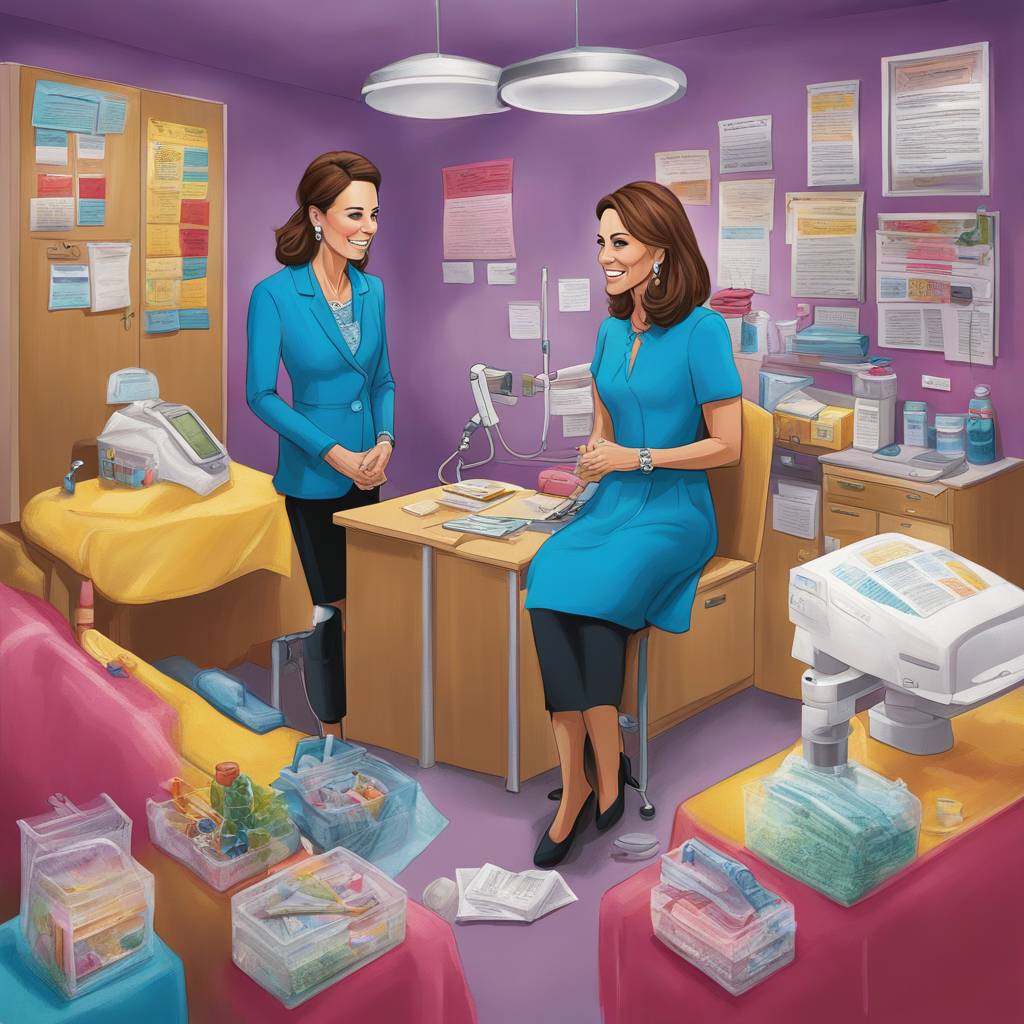The Princess of Wales, Catherine, is currently undergoing treatment for cancer after discovering that the condition was present following a planned abdominal surgery in January. She shared in a rare video message that she is in the early stages of preventive chemotherapy. Her husband, Prince William, and their three children have been informed about her condition and are supportive of her recovery. Various well-wishers, including Prince Harry, Meghan Markle, U.K. Prime Minister Rishi Sunak, and Princess Diana’s brother, Charles Spencer, have sent their best wishes for her health and healing.
The specific type of cancer that Kate Middleton has is not specified in the information available. Dr. Ben Ho Park, director of precision oncology at Vanderbilt School of Medicine, mentions that common types of cancers discovered from abdominal surgery include gastrointestinal, urinary, and genital cancers. Preventive chemotherapy, also known as adjuvant chemotherapy, involves treatment given after initial treatment, such as surgery, to prevent cancer from returning. The decision to administer preventive chemotherapy is based on factors such as the stage and type of cancer, as well as the patient’s age.
Preventive chemotherapy, commonly used for cancers like breast, colon, ovarian, or lung cancer, typically lasts between three and six months. While the specific drugs used and their duration may vary, common side effects of chemotherapy include fatigue, decreased appetite, nausea, and organ-related complications. The goal of adjuvant chemotherapy is to eliminate any remaining cancer cells that may not have been removed during initial treatment. Although undergoing chemotherapy after initial treatment can reduce the risk of cancer recurrence, there is still uncertainty regarding whether the cancer will return in the future.
It is not definitively clear whether Kate Middleton currently has cancer, as she is in the early stages of preventive chemotherapy following her surgery. Dr. Park notes that many patients who undergo preventive chemotherapy may not have cancer at that moment, although there is uncertainty about whether they still have cancer or have been cured. The decision to administer preventive chemotherapy is based on maximizing the effectiveness of previous treatments and aiming to eliminate any remaining cancer cells. Kate Middleton’s process of undergoing preventive chemotherapy involves a focus on healing in mind, body, and spirit, with the hope of a successful recovery.
The news of Catherine’s cancer diagnosis and subsequent treatments has sparked an outpouring of support and well-wishes from various individuals, highlighting the importance of privacy and peace during her healing process. While details about the specific type of cancer or treatment plan are not fully disclosed, the focus remains on her health, recovery, and well-being. As she continues her journey of preventive chemotherapy, Catherine candidly shares her experiences and receives support from her family, friends, and well-wishers alike. The uncertainty surrounding cancer treatment underscores the importance of ongoing research, clinical trials, and personalized care to support individuals in their fight against cancer and promote better outcomes for patients like Catherine Middleton.













